Recession - live: Bank of England governor defends delay in hiking interest rates
The Bank of England governor has defended delays in hiking the interest rate.
The Bank yesterday increased interest rates to 1.75 per cent - the highest in 27 years - while warning that Britain will plunge into a year-long recession this autumn.
Mr Bailey said earlier interest rate rises could have damaged the UK's economic recovery following the pandemic.
It came after claims from politicians, including Attorney General Suella Braverman, that the Bank was asleep at the wheel and allowed inflation to get out of control.
Mr Bailey told BBC Radio 4's Today programme said he does not believe the Bank acted too slowly and that earlier action could have brought forward a recession.
“We don't make policy with the benefit of hindsight,” he added.
“I'd challenge anyone sitting here a year, two years ago, to say there will be war on Ukraine and it will have this effect on inflation.”
Key Points
Bank of England governor urges workers to limit pay rise demands to curb inflation
Inflation to reach 13 per cent this year, Bank predicts
UK faces long recession and deepest plunge in living standards on record, BoE warns
Andrew Bailey denies Bank was too slow to act over soaring inflation
16:05 , Thomas Kingsley
We’ll be ending our interest rates coverage. Thank you for following along.
Analysis| Everything you need to know about the recession forecast and what it means
15:40 , Thomas Kingsley
A recession is coming, according to the Bank of England, and it will be a long one, lasting more than a year.
The economy is not expected to shrink as sharply or as deeply as it did during the financial crisis in 2008, but inflation - the rate of price rises - is set to stay elevated through 2023. This will drive down living standards by the greatest rate on record, according to the central bank.
Borrowing is now more expensive with the Bank of England’s key interest rate raised to 1.75 per cent on Thursday. And the buying power of money is set to be eaten into by inflation which it believes will hit more than 13 per cent later this year.
Our economics editor, Anna Isaac, has the full analysis below:

Recession forecast explained: What you need to know
‘Zombie government has checked out,’ Angela Rayner says
15:15 , Thomas Kingsley
Responding to the recent interest rates hike and forecast from the Bank of England, Labour deputy leader Angela Rayner said: “Boris Johnson's zombie Conservative government has checked out after crashing the economy.
“As the Bank of England forecasts the joint longest recession in three decades, the disgraced prime minister lingers on, asleep at the wheel, propped up by Tory MPs when he should be long gone.
“As people up and down the country are sick with worry about how they'll pay the bills, ministers have gone missing in action.
“The Tories have no plan, no leadership and no answers just more of the same from these two continuity candidates.
“Only Labour can provide the fresh start the country needs.”
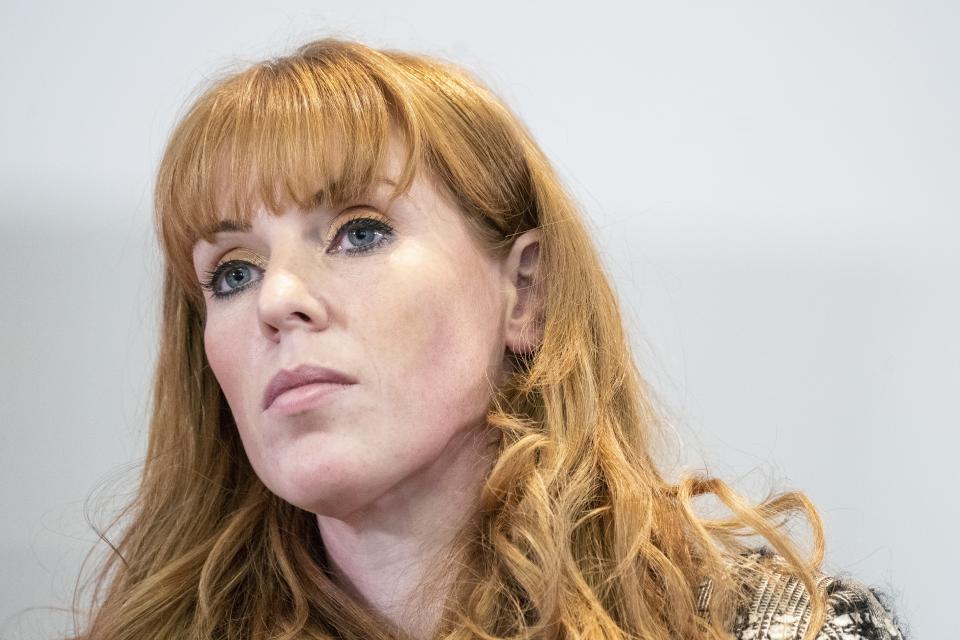
14:55 , Thomas Kingsley
CBI director general Tony Danker said the leadership candidates cannot choose between tackling either inflation or growth and must tackle both, and there is a need to look at the whole tax regime without “cherry-picking”.
Speaking on BBC Radio 4's World at One programme, Mr Danker said: “I think the candidates are having a debate about stagflation actually. Each candidate is sort of picking their worse evil to focus on first.
“But the trouble with stagflation is you don't get to choose between tackling inflation or tackling recession, you have to tackle both.
“So, that's challenge number one to the candidates, to not pick which one of inflation or recession they care about more, but to come up with a plan that tackles both.”
He added: “We need a genuine plan about growth, that when it comes to tax we need to talk about the whole tax regime, not cherry-picking the ones that are most totemic.
“We also need to think way beyond tax, we need to think about regulation that's pro-growth, we need to think about boosting growth markets, and above all, given where most people are in business today, is we need to think about a plan to tackle labour and skills shortages.”
‘We cannot wait until 5 September for action,’ CBI chief warns
14:35 , Thomas Kingsley
CBI director general Tony Danker said he fears a vacuum until the next prime minister is chosen, saying “we cannot wait until 5 September for action”.
He was speaking on BBC Radio 4's World at One programme and was asked about the prime minister and chancellor being on holiday while the economic crisis looms.
Mr Danker said: “I have no problem with people having short holidays. My fear is much more profound, which is that there will be a vacuum from now until September 5.
“We need the current prime minister and the current chancellor to fill that vacuum. We need them to make decisions. We need them to make plans. We need them to reassure firms, markets and households that we are gripping this.
“We cannot wait until 5 September for action. We cannot wait until 5 September for plans and we cannot wait until 5 September for reassurance.”
He added: “I think they need to be developing these interventions that are going to help people with the cost of living in the autumn. They need to be signalling on August 26 when Ofgem signal what the price rise is going to be.
“They need to be signalling that the government has a response and an answer. And they need to be setting out growth plans and growth intentions now.”
US creates 528,000 new jobs
14:15 , Thomas Kingsley
The US Non-Farm Payroll, which measures employment across the US, shows there were 528,000 new jobs created last month, beating forecasts of a slowdown to 250,000.
The US unemployment rate actually dropped to 3.5 per cent, with widespread job gains across leisure and hospitality, professional and business services, and health care - even though the US is technically in recession.
Wage growth was also stronger than forecast, with average hourly earnings up 0.5 per cent in the month.
Watch: ‘A recession is inevitable’ - Liam Fox says Liz Truss’ economic plan won’t work
13:55 , Thomas Kingsley
Sunak accuses Truss of plans that would pour ‘fuel on the fire’ of recession
13:35 , Thomas Kingsley
Rishi Sunak has accused Liz Truss of economic plans that would pour "fuel on the fire" just hours after the Bank of England warned the UK was heading for a recession.
In a shock announcement, the BoE forecast that the economy would shrink at the end of this year and continue contracting through the whole of 2023.
The former chancellor, who has argued that Ms Truss’s planned tax cuts are inflationary, told a Tory leadership debate organised by Sky News: “I’m worried that Liz Truss’s plans will make the situation worse.”
Read the full story here
Next PM will have to find ‘many more billions to help households pay soaring energy bills’
13:15 , Thomas Kingsley
The next prime minister will have to find "many more billions" of pounds to help households pay soaring energy bills, the head of a highly influential think tank has warned.
Paul Johnson, director of the Institute for Fiscal Studies, also said struggling public services will need more investment after the Bank of England predicted the UK would be plunged into the longest slump since 2008.
Sources in the Liz Truss camp did not deny that her planned emergency budget could come as early as September 21, as the dire state of the economy becomes the main issue in the race for Downing Street.
Read the full story below from our Whitehall editor, Kate Devlin:

Next PM will have to find ‘billions to help households pay soaring energy bills’
12:48 , Thomas Kingsley
Responding to UK house price falls Russell Galley, managing director, Halifax, said: “It's important to note that house prices remain more than £30,000 higher than this time last year.
“While we shouldn't read too much into any single month, especially as the fall is only fractional, a slowdown in annual house price growth has been expected for some time.
“Leading indicators of the housing market have recently shown a softening of activity, while rising borrowing costs are adding to the squeeze on household budgets against a backdrop of exceptionally high house price-to-income ratios.
“That said, some of the drivers of the buoyant market we've seen over recent years - such as extra funds saved during the pandemic, fundamental changes in how people use their homes, and investment demand - still remain evident.
“Therefore a slowing of annual house price inflation still seems the most likely scenario.”
Average UK house price falls month on month for first time since June 2021
12:25 , Thomas Kingsley
The average UK house price slipped back in July from a record high the previous month, marking the first month-on-month dip since June last year, according to an index.
Following a year of exceptionally strong growth, house prices fell by 0.1 per cent month on month in July, Halifax said.
This represented a £365 month-on-month fall in cash terms, from June's record average house price high of £293,586. Across the UK, the annual rate of price growth slowed to 11.8 per cent, down from 12.5 per cent in June.
In Scotland, the average house price was at a record high of £203,677, although it did see a slight slowdown in annual house price growth in July, to 9.6 per cent from 9.9 per cent the previous month.
Ben Shephard criticises government for being too ‘busy’ for GMB interview amid recession forecast
12:05 , Thomas Kingsley
Ben Shephard has criticised the government for refusing to send a minister to appear on Good Morning Britain amid warnings of a year-long recession hitting this autumn.
During Friday (5 August) morning’s episode of GMB, host Shephard said that, while they had asked for a Conservative minister to appear on the show as they were being criticised for “being absent in a time of crisis”, they had not.
Showing an empty chair sat against a Westminster backdrop, he said: “We did invite a minister onto the show. Despite what we’ve just heard… they didn’t want to turn up. They haven’t got time for us in their busy schedule.”
Read the full story below:
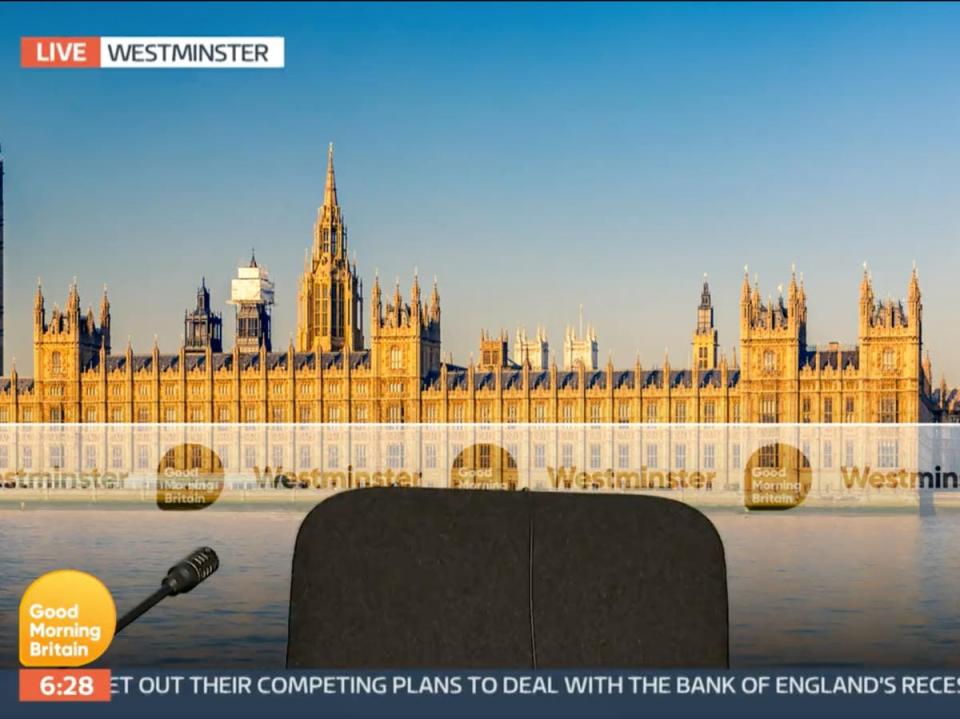
Ben Shephard criticises Tories as GMB interview chair empty amid recession forecast
11:45 , Thomas Kingsley
The governor of the Bank of England Andrew Bailey has said rocketing inflation “concerns me most” amid political criticism over the speed of actions taken by the bank to tackle the current economic turmoil.
“We are in the centre of things because of what is going on in the world at large and the impact that is having on inflation, and that's what concerns me most at the moment,” he told BBC Radio 4's Today programme.
“Central bank independence is critically important in our view, but our job is to get inflation back down to target.
“I think it's important that there is a full debate during this process to choose the next prime minister of this country.
“It is clearly very important that public officials like I do not intervene in this debate and I am not doing that.
“We have strong views, of course, but I look forward to working with the new Government and new prime minister, and sure we will have substantive exchanges on this.”
Minister suggests Bank of England acted too slowly
11:30 , Thomas Kingsley
Speaking to Sky News this morning, business secretary Kwasi Kwarteng also said there is a “strong argument” that interest rates should have been raised “slightly sooner”.
Asked how the Bank of England has handled the current situation, Mr Kwarteng said: “There is an argument - and I think it's a strong one - to say that inflation was an issue that was identified at the beginning of last year.”
He said: “The job of the Bank was to deal with the inflation. They have got a 2 per cent inflation target. That's actually their mandate. And now inflation is hitting double digits. So, clearly something has gone wrong and I think there is an argument to suggest that rates should have probably gone up slightly sooner.”
Interest rate increase ‘doesn’t make any sense,’ minister says
11:15 , Thomas Kingsley
Business Secretary Kwasi Kwarteng, who is backing Liz Truss in the Conservative leadership content, argued that taking more of people's money through tax when their real income is being squeezed by inflation “doesn't make any sense”.
Speaking to BBC Radio 4's Today programme, he said: “There is pressure on public finances but the immediate problem, as Liz always said, is one of growth.
“She talked about recession very early on, a few weeks ago, at the beginning of the leadership contest, and the risk of recession means that you can't have rising interest rates, which we saw yesterday, and also have tighter fiscal policy. No economist in the world is going to say that the way to deal with a looming recession is to tighten monetary policy and to tighten fiscal policy at the same time.”
Challenged that problems on the supply side are predominantly causing inflation rather than consumer demand in the market, he said: “Inflation means that you're spending, you have less of your money, you have less of your real income is being squeezed.
“But you don't put up interest rates as well as tightening fiscal policy. Nobody is doing that. That's why, across the the world, people are actually saying we need to help people.”
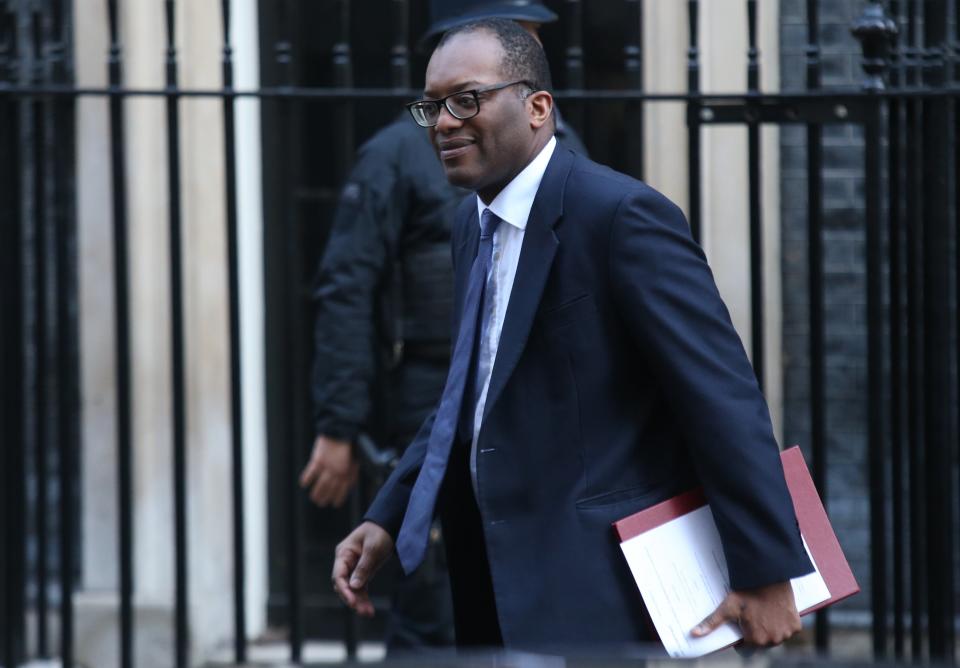
Not time for ‘hard-pressed’ workers to make cuts, TUC official says
11:00 , Thomas Kingsley
Commenting on the Governor of the Bank of England’s suggestion that workers’ pay should not keep up with the cost of living and that workers with bargaining power in particular should show restraint, TUC Head of Economics Kate Bell said:
“It’s time for companies to rein in their profits – not for hard pressed workers to cut back even further.
“After the longest and harshest wage squeeze in 200 years, working people in every part of the country are suffering a huge fall in living standards as prices soar.
“With incomes set to fall even further and the economy teetering on the brink of recession, it’s now more than ever that workers need a pay rise.
“Without wage increases, working people will simply stop spending on anything non-essential – and that will hurt our high streets, damage business and make a recession very likely, putting jobs at risk up and down the country.
“Making sure people can put food on the table for their family is not going to push up inflation.
“'If the Governor is worried that some workers might miss out on negotiated pay rises, he should encourage all workers to join a union.”
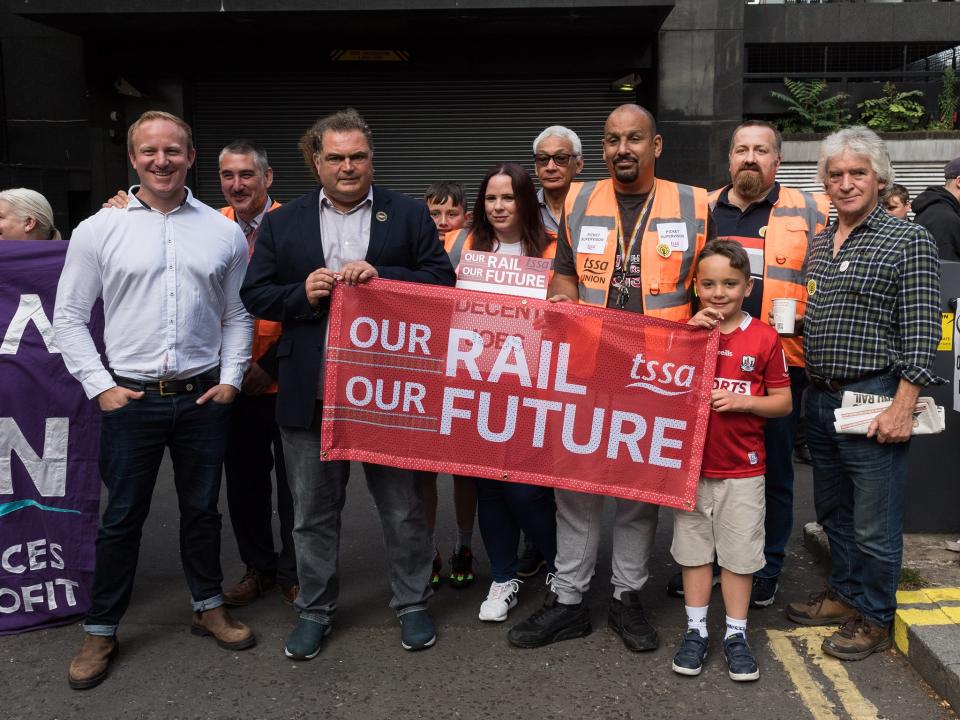
Andrew Bailey denies Bank was too slow to act over soaring inflation
10:48 , Thomas Kingsley
Governor Andrew Bailey has also today denied criticism that the Bank was too slow to act over soaring inflation.
It came after claims from politicians, including Attorney General Suella Braverman, that the Bank was asleep at the wheel and allowed inflation to get out of control.
Mr Bailey told BBC Radio 4’s Today programme said he does not believe the Bank acted too slowly and that earlier action could have brought forward a recession.
“We don’t make policy with the benefit of hindsight,” he added.
“I’d challenge anyone sitting here a year, two years ago, to say there will be war on Ukraine and it will have this effect on inflation.”
Read the full story here
Bank of England governor urges workers to limit pay rise demands to curb inflation
10:46 , Thomas Kingsley
With the Bank of England’s interest rate increases came governor Andrew Bailey’s suggestion that workers should limit their demands for a pay rise this year warning of the impact of high inflation on those who don’t have ‘bargaining power’.
Andrew Bailey said the problem was one “we all have to be very conscious of" hours after he warned households will suffer the deepest fall in living standards on record as the UK plunges into a yearlong recession this autumn.
Calling for wage restraint, Mr Bailey said: “If everybody tries to beat inflation, it doesn’t come down, it gets worse, that’s the problem.”
He added: “There’s a second problem. I put this in terms of high pay rises and high price increases, because in that world it’s the people who are least well off who are worst affected, because they don’t have the bargaining power. I think that is something that broadly we all have to be very conscious of.”
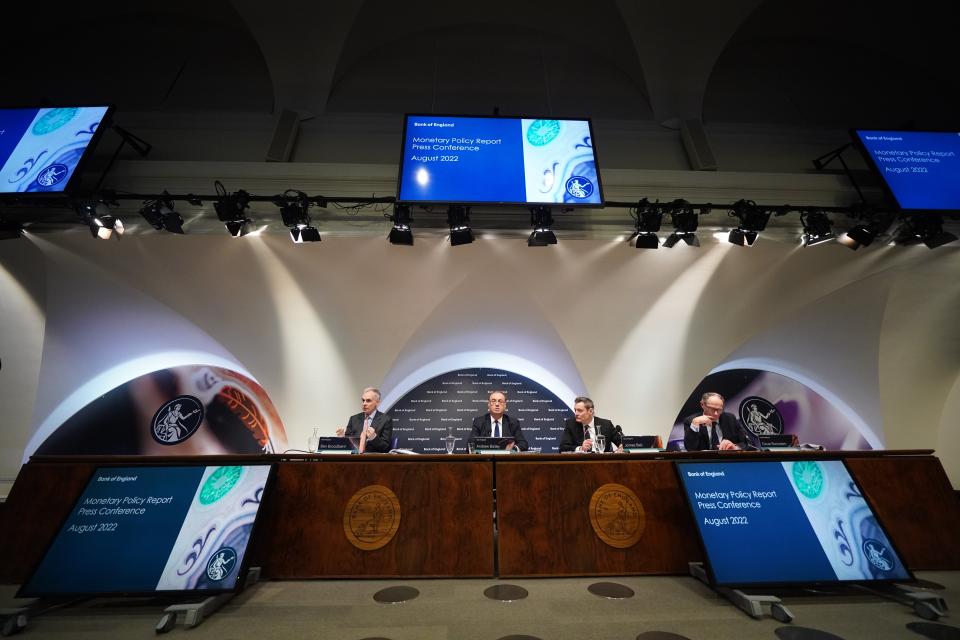
ICYMI: UK faces long recession and deepest plunge in living standards on record
10:42 , Thomas Kingsley
Yesterday the Bank of England announced that interest rates would be increased to 1.75 per cent, in addition to an ominous warning that Britain will plunge into a year-long recession this autumn in which households will be hit by the deepest fall in living standards on record.
In one of its bleakest ever assessments of UK economic prospects, the Bank’s Monetary Policy Committee (MPC) said inflation will now peak at 13.3 per cent in the final three months of this year as average energy bills treble from £1,200 in 2021 to £3,500 by October.
The economy is now forecast to shrink in five consecutive quarters for the first time since the global financial crash of 2008.
More below from our business correspondent, Ben Chapman:
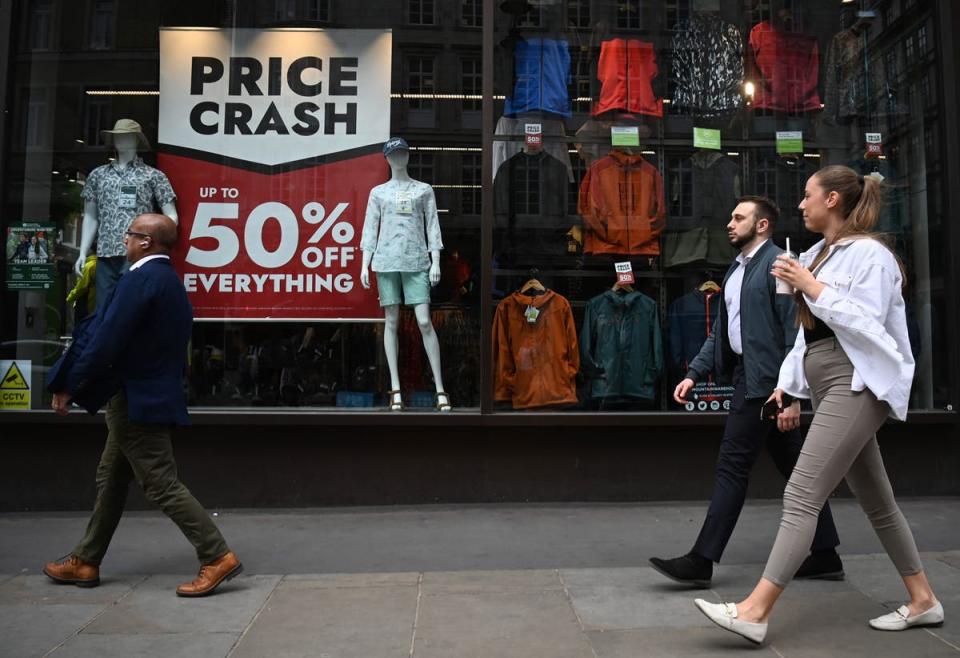
UK faces deepest plunge in living standards on record, Bank of England warns
Welcome
10:38 , Thomas Kingsley
Good morning and welcome to The Independent’s live blog coverage following yesterday’s interest rate announcement. We’ll be bringing the latest updates as the nation reacts to the Bank’s recession warning.
